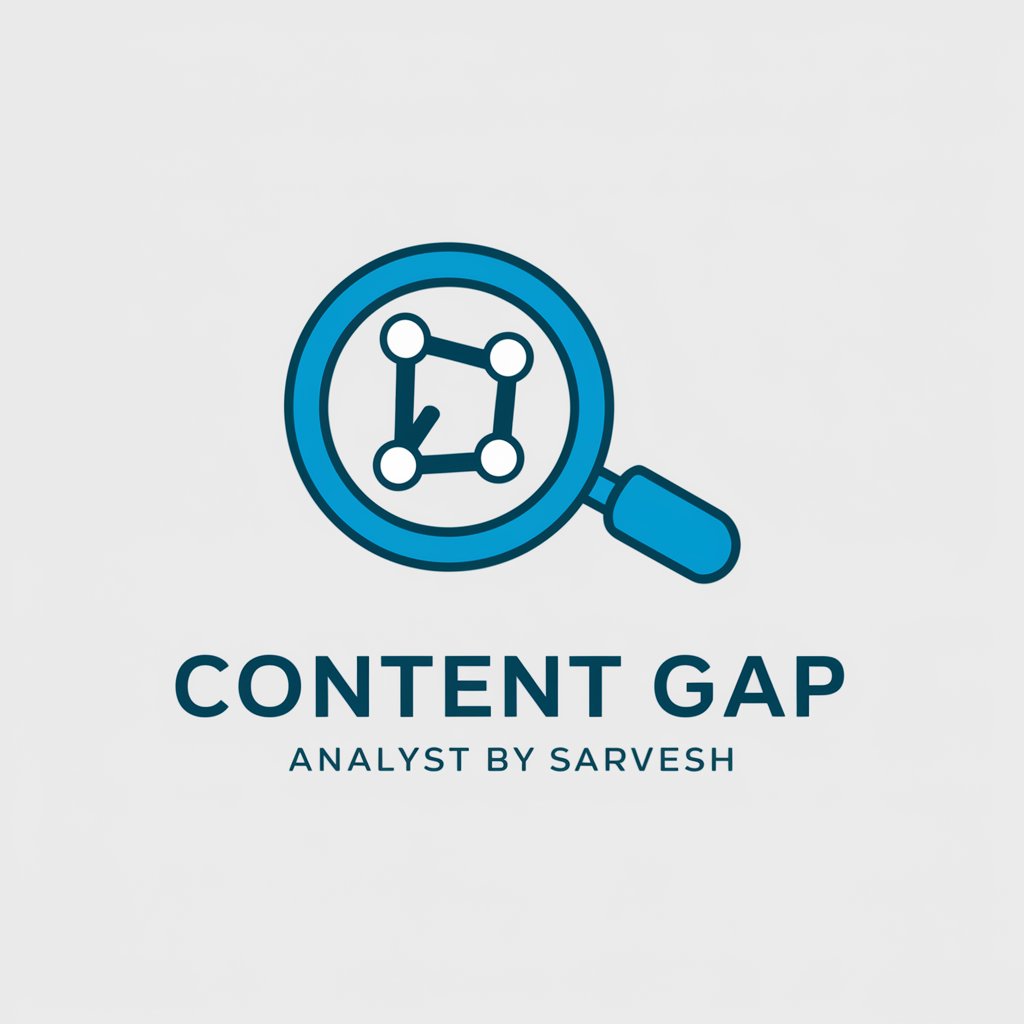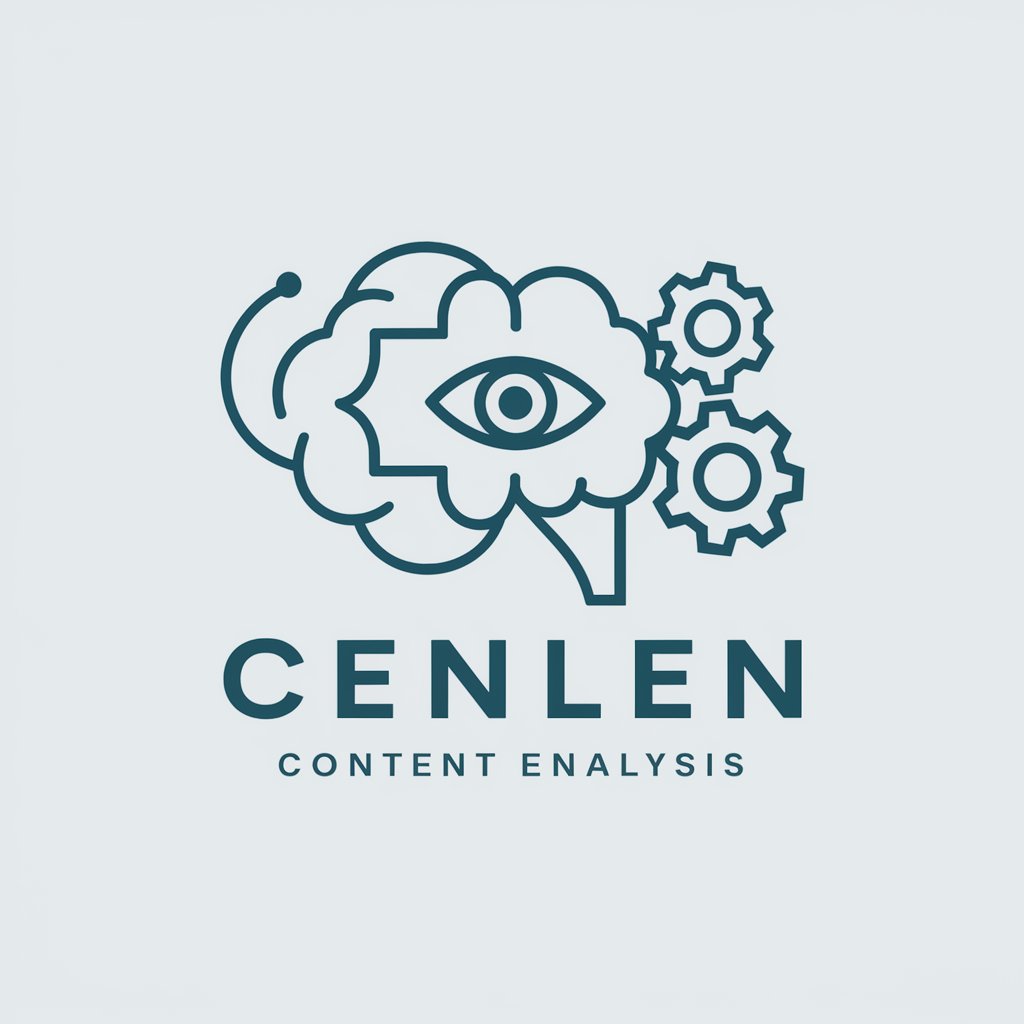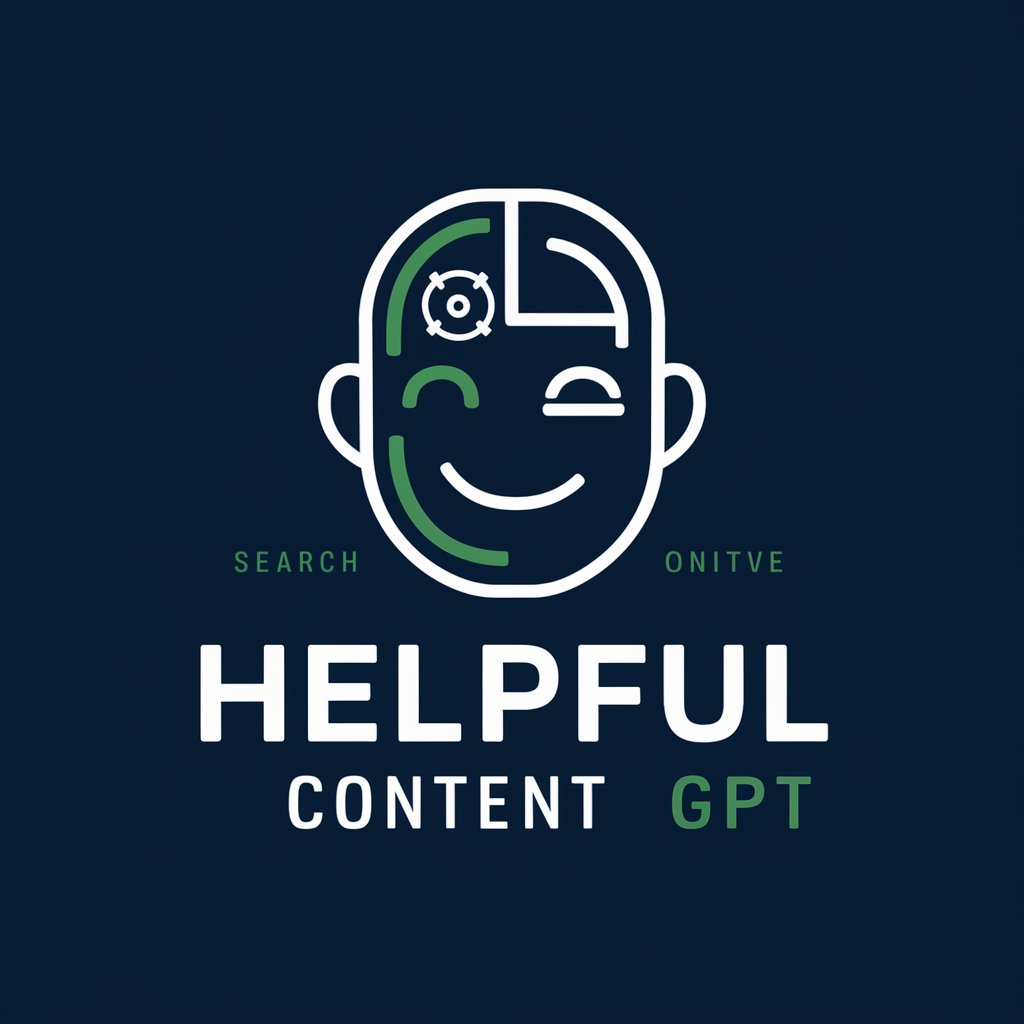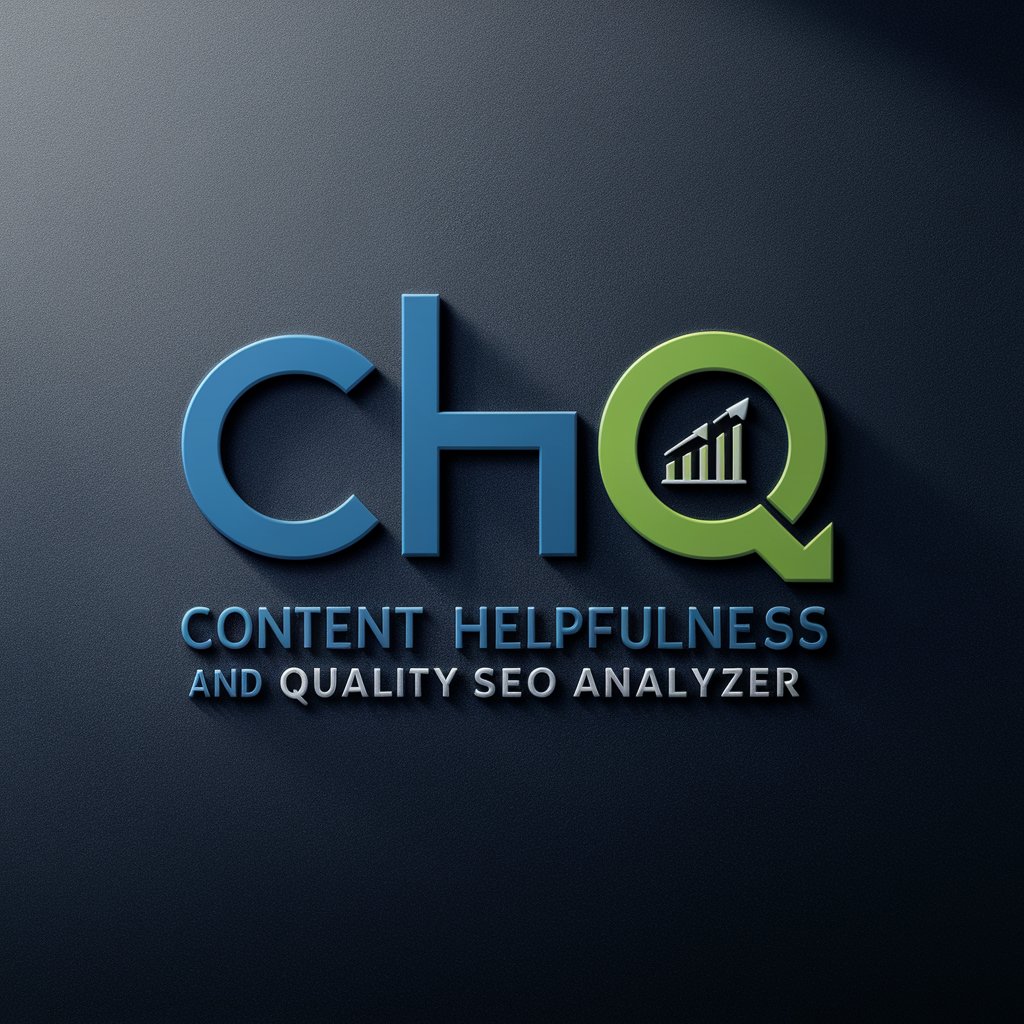
Helpful Content Analyzer By Sarvesh - AI content quality evaluator

Friendly analyzer of blog posts for quality and EEAT.
AI-powered content analysis for better rankings
Please Provide the Post URL
Get Embed Code
Overview of Helpful Content Analyzer By Sarvesh
Helpful Content Analyzer By Sarvesh is a specialized tool designed to evaluate the quality, relevance, and ranking potential of online content, particularly for SEO purposes. Its primary goal is to ensure that written material meets Google's guidelines for helpful content while assessing factors such as factual accuracy, structure, and authority. By focusing on Google's E-E-A-T (Experience, Expertise, Authoritativeness, Trustworthiness) guidelines, it provides a comprehensive evaluation to help content creators and businesses optimize their material for higher search engine rankings. For example, when analyzing a blog post, the tool would assess how well the content addresses user intent, whether it's engaging, and if it presents factual and reliable information from authoritative sources. Based on the analysis, recommendations are made on how to improve its ranking potential, ensuring that it satisfies both the reader's needs and search engine algorithms. Powered by ChatGPT-4o。

Key Functions of Helpful Content Analyzer By Sarvesh
Content Scoring Based on Google's Guidelines
Example
Analyzes the content and assigns a score from 1 to 10 based on how well it meets Google's helpful content guidelines. This includes readability, factual accuracy, and how well it addresses user needs.
Scenario
A company publishes a product guide, and the tool identifies areas where the content lacks depth or is overly promotional, advising on improvements such as adding user testimonials or addressing common concerns more thoroughly.
E-E-A-T Evaluation (Experience, Expertise, Authoritativeness, Trustworthiness)
Example
Provides individual scores for experience, expertise, authoritativeness, and trustworthiness, allowing for a detailed breakdown of where the content might fall short.
Scenario
A health blog post is reviewed, and the tool points out that while the content is accurate, it lacks references to authoritative medical sources, lowering its 'Authoritativeness' score. It suggests citing peer-reviewed studies to enhance trustworthiness.
Recommendations for SEO Optimization
Example
Offers actionable SEO suggestions based on content structure, keyword usage, and user intent.
Scenario
A blog post about digital marketing trends is underperforming. The tool recommends optimizing meta tags, adding internal links, and adjusting headings to better align with high-volume search terms.
Content Mistakes and Quality Gaps Identification
Example
Pinpoints factual errors, grammatical mistakes, and instances where the content may not fully address the searcher’s intent.
Scenario
A financial advice article is flagged for outdated information regarding tax laws. The tool advises updating the content with current regulations and adding links to authoritative sources like government websites.
Comprehensive User Experience Assessment
Example
Analyzes readability, engagement levels, and how well the content satisfies the user's intent.
Scenario
A travel guide for backpacking in Europe is evaluated. The tool suggests improving readability by breaking up long paragraphs, using bullet points, and adding visuals to enhance user experience.
Target Audience for Helpful Content Analyzer By Sarvesh
Content Creators and Writers
Freelance writers, bloggers, and content creators benefit from detailed feedback on how their content aligns with Google's guidelines. They can improve readability, factual accuracy, and SEO to increase engagement and search rankings.
Digital Marketers and SEO Professionals
SEO specialists and digital marketers use the tool to ensure that the content they produce or manage is optimized for search engines. By evaluating keyword usage, user intent, and content structure, they can enhance organic traffic and conversion rates.
Business Owners and E-commerce Websites
E-commerce site owners and business blogs benefit from the tool’s ability to evaluate product descriptions, buyer guides, and other marketing content. It helps them create informative, SEO-friendly content that boosts both visibility and sales.
Agencies and Content Management Teams
Marketing agencies and content management teams can use the tool to ensure that their clients' content adheres to SEO best practices, offering data-driven suggestions for improvement to maximize content performance.
Academic and Professional Writers
Academic writers and professionals who publish research or white papers can use the tool to assess the factual accuracy and authoritativeness of their work, ensuring their content meets high standards of trustworthiness.

How to Use Helpful Content Analyzer by Sarvesh
1
Visit yeschat.ai for a free trial without login, no need for ChatGPT Plus.
2
Once on the platform, paste the URL of the content you want analyzed in the designated field.
3
The tool will evaluate the content based on Google’s helpful content guidelines, scoring factors like quality, factual accuracy, and SEO friendliness.
4
Receive detailed feedback on areas like helpfulness, experience, expertise, authoritativeness, and trustworthiness, with actionable recommendations.
5
Use the feedback to improve the content, boosting its SEO performance and ranking potential.
Try other advanced and practical GPTs
FAQ Post Runner
AI-Powered Tool for SEO Content

BOA - AI-Powered Entrepreneur Course Bot
AI-powered automation for entrepreneurs.

💜Flowing Art by Artistry Blends
AI-powered art creation for unique designs.

مترجم احترافي للعربية
AI-powered translation and editing for Arabic.

캡쳐 이미지 분석기
AI-Powered Image Analysis for Keywords.

The Profile System A.I
Automate your content with AI precision

블로그마스터
AI-driven SEO content optimization tool

ClinicMedAssist+
AI-Powered Clinical Assistance for GPs
Web Story Creator
AI-powered storytelling made simple

Data Architect (Diagram)
AI-driven tool for data architecture diagrams

Aminos AutoFlows ✨
AI-powered flows for customer interaction
Carrossel Automático @advlider
AI-powered tool for dynamic legal posts

Q&A About Helpful Content Analyzer by Sarvesh
What is the primary purpose of the Helpful Content Analyzer?
The tool helps content creators and SEO specialists analyze and improve articles, blogs, and other digital content according to Google’s helpful content guidelines, ensuring they rank better in SERPs.
How does it evaluate content quality?
It assesses content on various factors such as relevance, factual accuracy, depth, and alignment with user search intent, offering a detailed score based on these metrics.
Is there any integration with other SEO tools?
The tool focuses primarily on content quality evaluation and does not directly integrate with other SEO tools. However, the insights provided can complement tools like Google Analytics or SEMrush by helping improve content performance.
What are EEAT guidelines and why are they important?
EEAT stands for Experience, Expertise, Authoritativeness, and Trustworthiness. These guidelines help assess how credible and reliable a piece of content is, which is crucial for Google rankings. The tool evaluates content based on these factors to help boost its trust and authority.
Can the tool be used for non-English content?
Currently, the tool works best with English content. However, future updates may include support for additional languages to expand its usability.





